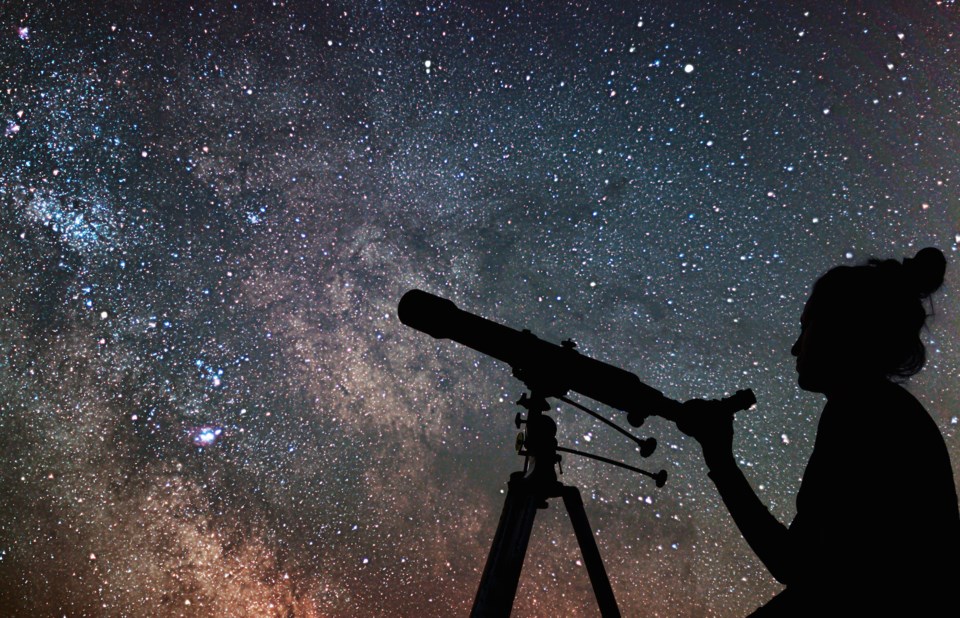BradfordToday and InnisfilToday welcome letters to the editor at [email protected] or via the website. Please include your full name, daytime phone number and address (for verification of authorship, not publication).
As we once again hear the hype about the effects that daylight savings has on us, let’s look at something we live in 24/7, 365 days of the year and that has a far greater impact on our lives, health and environment. I’m talking about light pollution.
For centuries, humans have lived with about 12 hours of dark and 12 hours of light. We had grown accustomed to dark skies and we’d been awestruck by the beauty of billions of stars. About 100 years ago, electricity was invented and nightlife was extended. Unfortunately, we now have an excess of night light and that is causing widespread problems for humans, ecosystems and living creatures.
We don’t think about light as being a polluter: it doesn’t smell and we have grown used to living in a white/grey glow at night. We need light at night: no one can deny that fact, but do we need so much? Light pollution is an excess of artificial light caused mainly by misdirected, unnecessary and inefficient light sources, and is found in mainly large urban centres.
Light from sources that point upward and some that point downward but are reflected up, are dispersed in layers causing a glow that diminishes the darkness of the night sky. This glow extends far beyond large cities. If you want to see the real night sky, you sometimes have to drive a few hours from your home. It is economically wasteful and a great danger to our well-being.
Ninety-five per cent of stars that could normally be seen with the naked eye are hidden from our view. Every year we miss the greatest light shows in creation: the variety of meteor showers that light up the sky are mostly hidden from view. Our children and grandchildren have never seen a canopy of millions of stars unless they have been away from city lights, and even then, they do not get the full effect.
See the global map to understand what we are losing: https://globeatnight.org/.
Aside from the esthetics of stars, there are also a number of health concerns. Our human circadian rhythm, our biological clock — a sleep-wake pattern that is governed by the day-night cycle is disrupted. The photoreceptors in our eyes are disrupted by excessive artificial light at night.
Melatonin production that is needed to keep us healthy is suppressed. Melatonin has antioxidant properties that boosts our immune system, lowers cholesterol, and helps the functioning of the thyroid, pancreas, ovaries, testes, and adrenal glands.
We need daylight to thrive and we need dark nights to complete the cycle. Artificial lights create that grey glow in the sky and that means we no longer experience the dark nights we need. Many studies have shown that exposure to artificial lights at night increase our risk for obesity, depression, sleep disorders, diabetes, cancer, and heart disease.
The American Medical Association states, “Over the past 15 years, medical researchers have been led to conclude that night light increases the incidence of certain cancers, most notably breast cancer. In fact, researchers now estimate that up to 30 per cent of breast cancers may be due to light at night suppressing circadian rhythm. ...the World Health organization recently declared circadian- rhythm disruption to be a class 2A carcinogen."
The United Nations Environment program noted that light pollution has affected photosynthesis, insects, sea turtles, bird migration, and ecosystems. The research states there is a decline in insects, as well as declining skills in predation, movement, and reproduction.
Birds become disoriented by lights resulting in higher bird mortality due to collisions with buildings. Light pollution can stall the recovery of threatened species, hindering their ability to take long migration flights.
Light pollution is one of the easiest and economical to eliminate. There are a number of things we can do in our homes and yards that would be helpful. Choosing the right lightbulbs for our homes, turning off lights in rooms when not in use, using a minimum of yard lights and making sure they point downwards, rather than up and outward.
We also need to dim all night lights. Huge skyscraper buildings in cities and multi-storey buildings in towns do not need to have lights on each floor glaring all night. Light from the lower floors along with street lights would provide enough light for walkers and cars. It has been noted that glaring light can be a safety hazard as it prevents us seeing what is behind the glare. Many drivers have experienced a momentary “almost” blindness when passing cars at night.
We need political will to accomplish this. The mayor and council in each jurisdiction have to be onside and implement strong guidelines for outside night light use. Then the mayors have to meet and integrate their guidelines so that a larger portion of the sky would be darkened. Imagine the night view if the area from Windsor to Barry agreed to dim lights.
Daylight savings time is approaching and yes, there are effects on our systems. However, the increase in longer, natural light during evenings especially in our northern hemisphere, is beneficial. Light pollution needs to be dealt with and eliminated. Then we can critique daylight savings on its own merits.
Back to the esthetics: our children and grandchildren would revel in seeing a dome of bright stars, planets, and meteor showers. Perhaps an interest in astronomy and space science would increase. There is something about the dark night sky that helps us realize our true place in this wide world. There is something larger we belong to. Protect it!
Sources and for further information:
Dark Sky
James Madison University
Alberta Dark Sky
UN Environment Program
Sharon Willan
Aurora
